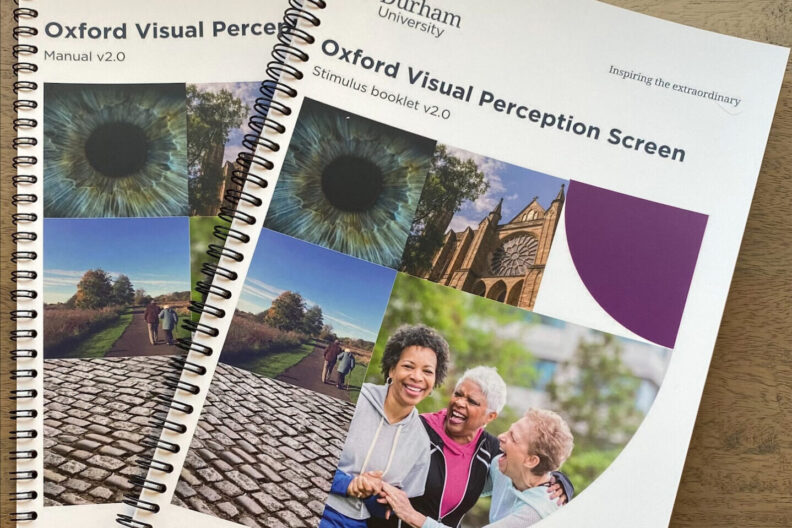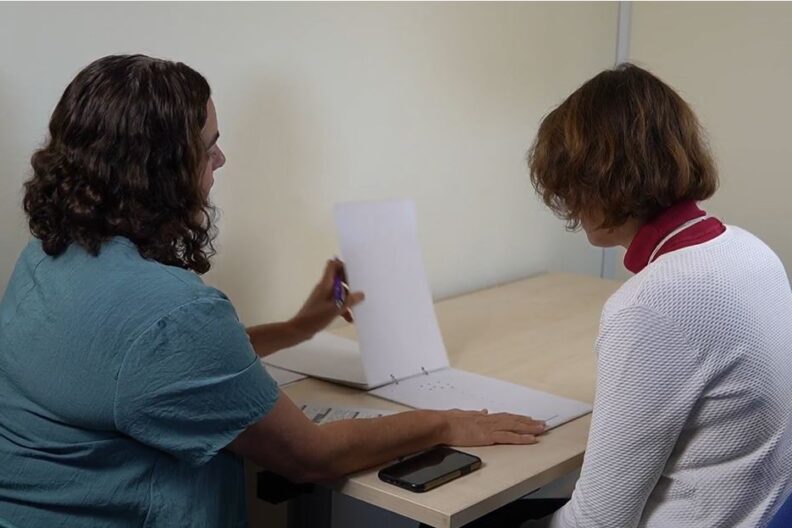Home
Oxford Visual Perception Screen
The Oxford Visual Perception Screen or OxVPS is a screening tool that checks for a wide range of visual perception problems after brain injury such as object recognition, face recognition, reading, eye-hand coordination (visuo-constructive skills), and neglect of the left or right side of space. In ten tasks, patients are asked to recognise drawings of objects, recognise faces, read a short paragraph, or draw a geometrical figure. OxVPS has been developed by teams of Dr Kathleen Vancleef from Durham University and Prof Nele Demeyere from University of Oxford.

Five reasons to try out OxVPS:
- OxVPS takes about 15 minutes to complete with a stroke survivor. That is a lot quicker than other standardised tests that easily take 45 minutes or more.
- OxVPS can be done at bedside and with stroke survivors with communication and concentration difficulties.
- OxVPS is easy to pick up. All instructions and answers are on the examiner form. Our 20-minute training video gives you further background information.
- OxVPS gives you a snapshot of what visual perception problems a stroke survivor might have. The results are visualised in an easily interpretable wheel.
- OxVPS is FREE for publicly funded health care and research.

Testimonials
“It’s a condensed way of being able to see if there any visual perception issues with our patients that we might be able to help with”. Mark Dearing, Orthoptist
“Everyone can’t wait to use it. It’s so well organised.” Laura O’Donnell and Maddy Matthews, Occupational Therapists
“If people have communication difficulties, it makes it a lot easier for responding”. Rosie Davis, Occupational Therapist
“We really like how quick it was. It works quite well at bedside, and it was really easy to administer.” Laura O’Donnell and Maddy Matthews, Occupational Therapists
Disclaimer: OxVPS is a screening tool. This means it is not able to diagnose visual perception problems. Instead it provides pointers for health care professionals to what might need further investigation or referral.
In partnership with:
Dr Kathleen Vancleef is funded by the National Institute for Health Research (NIHR) for this research project (Advanced Fellowship NIHR301715). The views expressed in this publication are those of the author(s) and not necessarily those of the NIHR, NHS or the UK Department of Health and Social Care. This work was also financially supported by the Stroke Association under fellowships awarded to Dr Kathleen Vancleef (TSA PDF 2017/03) and Prof Nele Demeyere (TSA LECT 2015/02).


